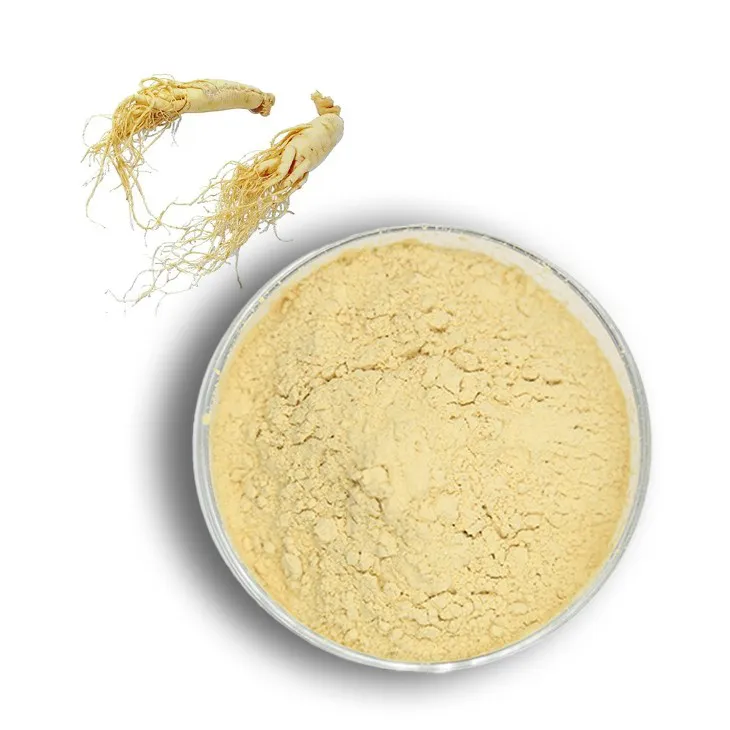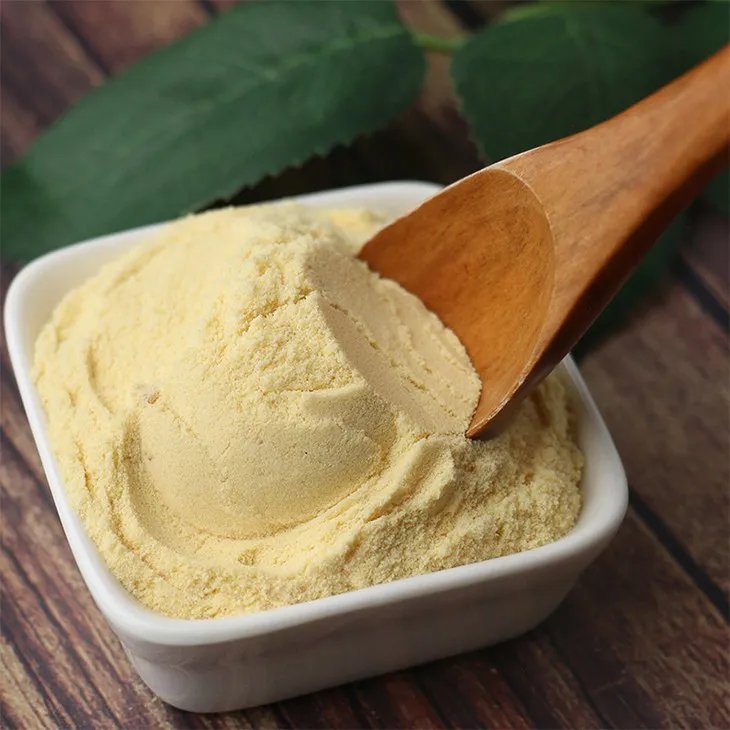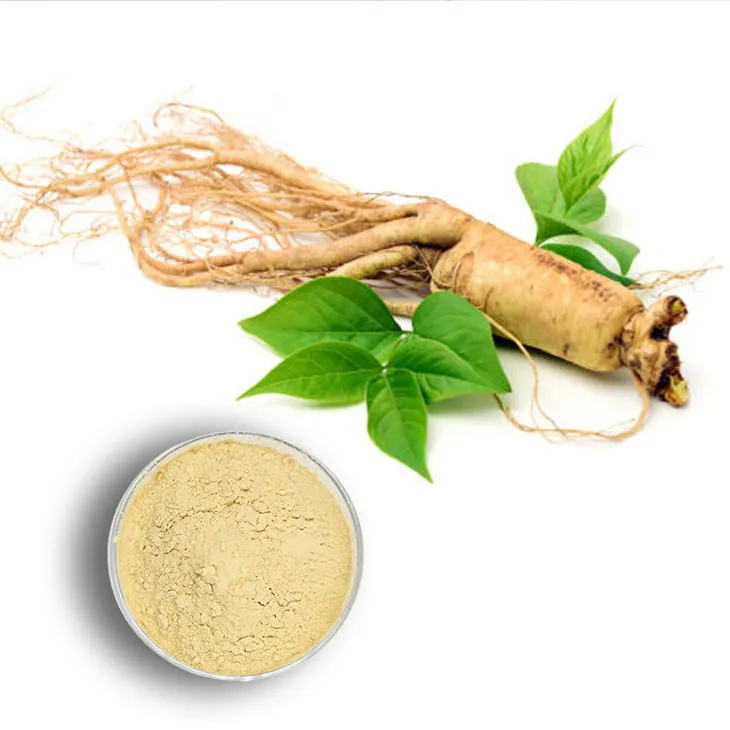- 0086-571-85302990
- sales@greenskybio.com
Emerging Trends and Competitive Strategies in the Ginseng Root Extract Market.
2024-12-09

1. Introduction
The Ginseng Root Extract market has been on a remarkable growth trajectory in recent years. Ginseng, a well - known plant in traditional medicine, has now found extensive applications in modern industries, especially in cosmetics and pharmaceuticals. This has led to a significant expansion of the market, attracting numerous players. Understanding the emerging trends and formulating effective competitive strategies are crucial for companies aiming to succeed in this dynamic market.

2. Emerging Trends in the Ginseng Root Extract Market
2.1. Cosmetic Industry Demand
The cosmetic industry has witnessed a growing appetite for Ginseng Root Extract. Ginseng is rich in antioxidants such as ginsenosides, which help in combating free radicals. These free radicals are responsible for skin aging, wrinkles, and dullness. Cosmetic products containing ginseng root extract are promoted for their ability to improve skin elasticity, reduce the appearance of fine lines, and give a healthy glow to the skin. For example, many high - end face creams and serums now feature ginseng as a key ingredient. This trend is likely to continue as consumers become more conscious about skin health and are willing to invest in products with natural and effective ingredients.
2.2. Pharmaceutical Industry Applications
In the pharmaceutical industry, ginseng root extract has shown great potential. It has been studied for its adaptogenic properties, which means it can help the body adapt to stress. Ginseng may also have potential in enhancing cognitive function, improving immunity, and regulating blood sugar levels. Research is ongoing to explore its efficacy in treating various diseases, such as diabetes and neurodegenerative disorders. As the global population ages and the prevalence of chronic diseases increases, the demand for ginseng - based pharmaceutical products is expected to rise.
2.3. Growing Consumer Awareness
Consumers are becoming more aware of the health benefits of ginseng root extract. With the easy access to information through the internet, people are educating themselves about natural remedies. This has led to an increased demand for ginseng - based products in the form of dietary supplements, teas, and tinctures. Moreover, consumers are also showing a preference for products that are sustainably sourced and have a clear origin. Companies that can provide transparency in their sourcing and production processes are likely to gain a competitive edge.
2.4. Technological Advancements in Extraction
Advancements in extraction technology have had a significant impact on the ginseng root extract market. New extraction methods such as supercritical fluid extraction and microwave - assisted extraction are being used to obtain higher - quality extracts with a greater concentration of active ingredients. These methods are more efficient, environmentally friendly, and can produce extracts with better stability and bioavailability. As a result, companies are investing in these advanced extraction technologies to improve the quality of their products and gain a competitive advantage.

3. Competitive Strategies in the Ginseng Root Extract Market
3.1. Product Differentiation
One of the key competitive strategies in the ginseng root extract market is product differentiation. Companies can differentiate their products in several ways. Firstly, by focusing on the quality of the ginseng root used. For example, some companies may source ginseng from specific regions known for their high - quality ginseng, such as the Changbai Mountains in China or the Korean Peninsula. Secondly, companies can develop unique formulations. This could involve combining ginseng root extract with other complementary natural ingredients to enhance its efficacy. For instance, a company might create a product that combines ginseng with Green Tea Extract for antioxidant - rich dietary supplements. Thirdly, packaging can also be a means of differentiation. Eco - friendly and convenient packaging can attract consumers who are environmentally conscious and value ease of use.
3.2. Research and Development Investment
Investing in research and development (R & D) is crucial for companies in this market. R & D can lead to new product development, improvement of existing products, and discovery of new applications for ginseng root extract. For example, a company may invest in research to explore the potential of ginseng in treating a particular disease. This could result in the development of a new pharmaceutical product. Additionally, R & D can also focus on improving the extraction process to obtain a more pure and effective extract. By continuously investing in R & D, companies can stay ahead of their competitors and meet the evolving needs of the market.
3.3. Market Expansion
Market expansion is another important competitive strategy. Companies can look to expand into new geographical markets. For example, if a company has a strong presence in the domestic market, it can consider entering international markets. This may require understanding the regulatory requirements, cultural differences, and consumer preferences in different countries. Another way of market expansion is to target new customer segments. For instance, a company that has been mainly focusing on the pharmaceutical industry can start targeting the cosmetic industry or vice versa. Additionally, companies can also explore new distribution channels. With the growth of e - commerce, online sales channels can provide an opportunity for companies to reach a wider customer base.
3.4. Strategic Partnerships and Collaborations
Forming strategic partnerships and collaborations can be beneficial for companies in the ginseng root extract market. For example, a ginseng extract manufacturer can partner with a cosmetic brand to develop a new line of ginseng - based cosmetics. This can help both parties leverage their respective strengths, such as the manufacturer's expertise in extraction and the brand's marketing and distribution capabilities. Collaborations can also occur in the area of research. A company can collaborate with academic institutions or research centers to conduct joint research on ginseng root extract. This can lead to new knowledge, patents, and product development opportunities.
3.5. Brand Building
Brand building is essential in a competitive market like that of ginseng root extract. A strong brand can convey trust, quality, and reliability to consumers. Companies can build their brands through various means. Firstly, by providing high - quality products consistently. This will help in building a reputation for excellence. Secondly, effective marketing and advertising are crucial. This can include using social media platforms, participating in trade shows, and advertising in relevant industry publications. Thirdly, companies can engage in corporate social responsibility activities. For example, a company can support sustainable ginseng farming initiatives or community development projects in ginseng - growing regions. This can enhance the brand's image and make it more appealing to consumers.

4. Conclusion
The ginseng root extract market is full of opportunities and challenges. The emerging trends, such as the growing demand in the cosmetic and pharmaceutical industries, increasing consumer awareness, and technological advancements in extraction, are shaping the market's future. To stay ahead in this dynamic market, companies need to adopt effective competitive strategies. Product differentiation, research and development investment, market expansion, strategic partnerships, and brand building are all important elements of a successful strategy. By carefully analyzing the market trends and implementing the appropriate strategies, companies can not only survive but also thrive in the ginseng root extract market.

FAQ:

What are the main beneficial properties of ginseng root extract driving its demand in the cosmetic and pharmaceutical industries?
Ginseng root extract is rich in ginsenosides, which have antioxidant, anti - inflammatory, and anti - aging properties. In the cosmetic industry, these properties can help improve skin texture, reduce wrinkles, and enhance skin elasticity. In the pharmaceutical industry, ginseng root extract has been studied for its potential to boost the immune system, improve cognitive function, and have adaptogenic effects, which help the body adapt to stress.
How does product differentiation work as a competitive strategy in the ginseng root extract market?
Product differentiation in the ginseng root extract market can be achieved in several ways. For example, companies can focus on the extraction method to produce a higher - quality or more pure extract. They can also develop unique formulations by combining ginseng root extract with other natural ingredients to create products with enhanced benefits. Additionally, differentiating in terms of product packaging, such as using sustainable or innovative packaging materials, can attract consumers who are environmentally conscious or interested in novel products.
What role does research and development investment play in the ginseng root extract market?
Research and development (R & D) investment is crucial in the ginseng root extract market. It allows companies to explore new applications of ginseng root extract. For instance, through R & D, new extraction techniques can be developed to increase the yield and purity of the extract. R & D also helps in studying the potential health benefits of ginseng root extract more deeply, which can lead to the development of new pharmaceutical or nutraceutical products. Moreover, it enables companies to stay updated with the latest scientific findings and regulatory requirements in the industry.
How can companies expand their market share in the ginseng root extract market?
Companies can expand their market share in the ginseng root extract market in various ways. One approach is geographical market expansion, by entering new regions where there is growing demand for ginseng - based products. Another way is to target new customer segments, such as the younger generation interested in natural health products or athletes looking for performance - enhancing supplements. Collaborating with other companies in the supply chain, such as raw material suppliers or distributors, can also help in reaching a wider market. Additionally, digital marketing strategies can be used to increase brand awareness and promote products to a larger audience.
What are the potential challenges for companies implementing competitive strategies in the ginseng root extract market?
One potential challenge is the high cost associated with research and development investment, especially for small and medium - sized enterprises. Regulatory compliance can also be a hurdle, as the ginseng root extract market is subject to strict regulations regarding product quality, safety, and labeling. Competition from other natural ingredients or alternative products can be intense, and companies need to constantly prove the superiority of ginseng root extract. Additionally, ensuring a stable supply of high - quality raw materials can be difficult, as ginseng cultivation is affected by factors such as climate, pests, and diseases.
Related literature
- The Health Benefits of Ginseng Root Extract: A Comprehensive Review"
- "Ginseng Root Extract in Cosmetics: Trends and Innovations"
- "Competitive Landscape in the Ginseng - Based Product Market"
- ▶ Hesperidin
- ▶ Citrus Bioflavonoids
- ▶ Plant Extract
- ▶ lycopene
- ▶ Diosmin
- ▶ Grape seed extract
- ▶ Sea buckthorn Juice Powder
- ▶ Fruit Juice Powder
- ▶ Hops Extract
- ▶ Artichoke Extract
- ▶ Mushroom extract
- ▶ Astaxanthin
- ▶ Green Tea Extract
- ▶ Curcumin
- ▶ Horse Chestnut Extract
- ▶ Other Product
- ▶ Boswellia Serrata Extract
- ▶ Resveratrol
- ▶ Marigold Extract
- ▶ Grape Leaf Extract
- ▶ New Product
- ▶ Aminolevulinic acid
- ▶ Cranberry Extract
- ▶ Red Yeast Rice
- ▶ Red Wine Extract
-
Garcinia Cambogia Extract
2024-12-09
-
Elderberry Extract
2024-12-09
-
Acerola Extract
2024-12-09
-
Moringa powder
2024-12-09
-
Hesperidin
2024-12-09
-
Citrus bioflavonoids
2024-12-09
-
Black Pepper Extract
2024-12-09
-
Kidney Bean Extract
2024-12-09
-
Bamboo Leaf extract
2024-12-09
-
Senna Leaf Extract
2024-12-09





















